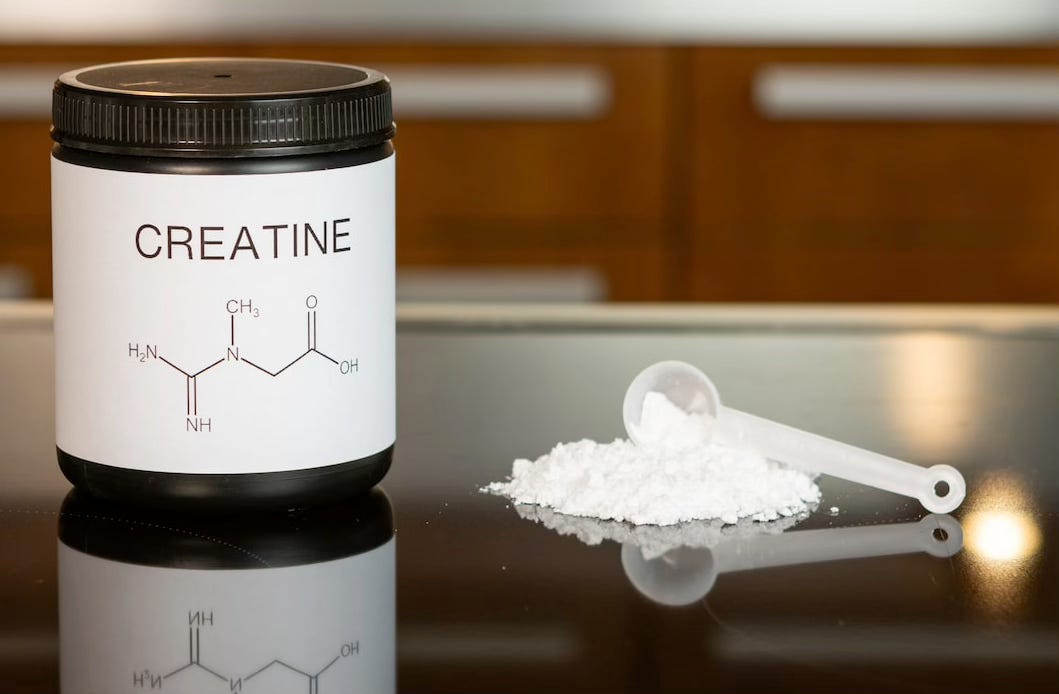"Creatine: A Versatile Supplement for Peak Performance Across Sports"
Introduction
Creatine, a natural compound found in food and produced within the body, has been a staple in the realm of sports nutrition since the 1800s. While initially associated with strength-based sports and muscle maximization, recent studies reveal its potential benefits for endurance athletes. This article delves into the science behind creatine and its application in the endurance sports arena.
Understanding Creatine
Creatine is naturally present in meat, fish, and synthesized by the liver, pancreas, and kidneys. Stored in muscles, creatine serves as a crucial component in generating adenosine triphosphate (ATP), the body's primary energy currency. It achieves this by converting adenosine diphosphate (ADP) back into ATP through the donation of a phosphate group. This process allows for sustained energy production, vital for high-intensity exercise.
Boosting Endurance Performance
While creatine has been extensively studied in the context of short bursts and intermittent efforts, its role in endurance sports is gaining traction. Recent research suggests that creatine's impact on time trial performances may be most pronounced in the final stages of a race, especially during finishing sprints. It is in these crucial moments that creatine supplementation can potentially provide that extra edge.
Furthermore, creatine demonstrates favorable effects on anaerobic work capacity and time-to-exhaustion during high-intensity exercise. Notably, it aids in buffering lactate levels, reducing acidity and fatigue during intense efforts. Additionally, creatine appears to enhance muscular efficiency, potentially allowing athletes to maintain a given intensity with slightly less oxygen consumption. However, it's essential to acknowledge that individual responses may vary due to factors like genetics, diet, and fiber-type distribution.
Recovery and Adaptation

Creatine's benefits extend beyond immediate performance enhancement. It acts as an antioxidant and anti-inflammatory agent, supporting recovery and reducing inflammation markers after intense exercise. This is particularly significant for endurance athletes, who frequently engage in prolonged and demanding training sessions. Studies have shown that when taken for 5-7 days before a significant effort, creatine can aid in post-exercise recovery.
Weight, Hydration, and Performance
Creatine has often been associated with weight gain, but this increase is primarily due to water retention within muscle cells. This phenomenon, known as osmolytic action, enhances hydration status. Research has shown that creatine supplementation improves thermoregulatory responses during exercise in the heat, reducing the risk of cramps, dehydration, and heat-related illnesses. While a loading phase can lead to a more rapid increase in saturation, the benefits of creatine may outweigh the slight increase in body mass.
Creatine and Caffeine: A Balancing Act
Studies on the interaction between creatine and caffeine have yielded mixed results. While early studies anticipated a performance boost when combining these two ergogenic aids, results suggested the opposite, with caffeine potentially hindering creatine's benefits. Notably, some studies reported significant gastrointestinal discomfort in groups using both creatine and caffeine. Therefore, it is advisable to monitor individual reactions and potentially consume them at different times throughout the day.
Beyond Endurance Sports: Cognitive Benefits
Creatine's impact extends beyond physical performance, showing promise in cognitive domains. Supplementation may increase creatine and phosphocreatine storage in the brain by up to 10%. This is particularly relevant as cognitive tasks and acute stressors elevate the brain's ATP demands. Research indicates improvements in short-term memory, intelligence, and reasoning tests with creatine supplementation. Moreover, there is promising evidence for its potential in managing neurodegenerative diseases like Alzheimer's and Parkinson's.
Conclusion
While creatine may not be a complete game-changer for endurance athletes, its potential to offer marginal gains, especially in events demanding short bursts of power or sprints, is substantial. Understanding how to integrate creatine into an athlete's regimen, whether through loading phases or maintenance doses, can be a valuable tool in maximizing performance potential. With its wide-ranging benefits, creatine proves to be a versatile asset for athletes across various disciplines.




